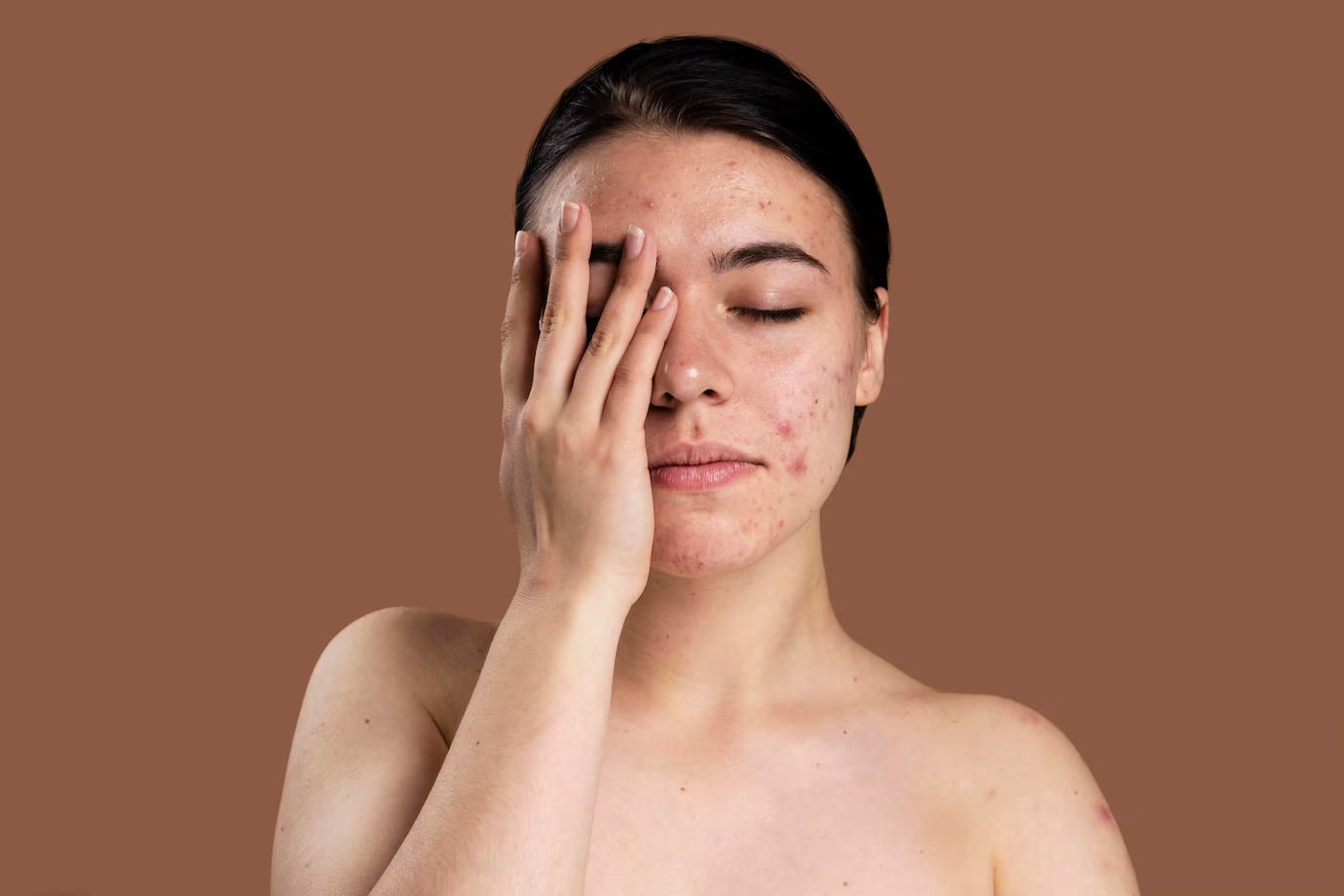What is Acne?
Acne is a skin condition that occurs when hair follicles become clogged with oil, dead skin cells, and bacteria. It primarily manifests as pimples, blackheads, whiteheads, cysts, and nodules, typically appearing on the face, back, shoulders, and chest. Acne can vary in severity, from mild breakouts to severe forms that may require medical intervention.
Causes of Acne
Several factors contribute to the development of acne, including:
- Hormonal Changes
Fluctuations in hormones, particularly during puberty, menstruation, pregnancy, or hormonal disorders, can trigger excess oil production in the skin, leading to acne. - Excess Oil Production
The sebaceous glands produce oil (sebum) to keep the skin moisturized. However, overproduction of sebum can contribute to clogged pores and the development of acne. - Bacteria
The presence of Propionibacterium acnes (P. acnes) bacteria on the skin can lead to inflammation and the formation of acne. - Dead Skin Cells
When dead skin cells accumulate and fail to shed properly, they can clog hair follicles, leading to the development of acne. - Diet
Certain dietary factors, such as high glycemic index foods (sugars and refined carbohydrates) and dairy products, may exacerbate acne in some individuals. - Stress
Stress can trigger hormonal changes that may increase oil production, contributing to acne flare-ups. - Medications
Some medications, such as corticosteroids or androgens, may worsen acne. - Genetics
A family history of acne can increase the likelihood of developing the condition.
Treatment Options for Acne
Managing acne effectively often requires a combination of lifestyle changes, topical treatments, and, in some cases, prescription medications. Here are some common treatment options:
1. Over-the-Counter Treatments
- Benzoyl Peroxide: Kills bacteria and helps unclog pores.
- Salicylic Acid: Exfoliates the skin and prevents pore clogging.
- Retinoids: Help promote cell turnover and prevent clogged pores.
2. Prescription Medications
- Topical Retinoids: Prescription-strength retinoids, such as tretinoin, help prevent acne by promoting skin cell turnover.
- Antibiotics: Oral or topical antibiotics can reduce bacteria and inflammation.
- Hormonal Treatments: Birth control pills may help regulate hormones and reduce acne in women.
- Isotretinoin: A powerful oral retinoid prescribed for severe acne that does not respond to other treatments. It requires close monitoring due to potential side effects.
3. Professional Treatments
- Chemical Peels: Dermatologists apply chemical solutions to exfoliate the skin, reducing acne and improving skin texture.
- Laser Therapy: Various laser treatments target acne and reduce inflammation.
- Extraction Procedures: Professionals can safely remove cysts and large blackheads.
Tips for Preventing Acne
While not all acne can be prevented, implementing a few healthy habits can help reduce the frequency and severity of breakouts:
- Keep Your Skin Clean
Wash your face twice daily with a gentle cleanser to remove excess oil and dirt. Avoid harsh scrubs that can irritate the skin. - Moisturize
Use non-comedogenic moisturizers to keep your skin hydrated without clogging pores. - Avoid Touching Your Face
Touching your face can transfer bacteria and oils from your hands, leading to clogged pores. - Use Non-Comedogenic Products
Choose makeup, skincare, and hair care products labeled “non-comedogenic” to minimize pore clogging. - Manage Stress
Incorporate stress-reducing activities, such as exercise, yoga, or meditation, to help manage hormonal fluctuations. - Maintain a Healthy Diet
Limit high-glycemic foods and dairy, and incorporate plenty of fruits, vegetables, and whole grains into your diet. - Stay Hydrated
Drinking plenty of water can help maintain healthy skin and support overall health. - Consult a Dermatologist
If acne persists or worsens, seek advice from a dermatologist for personalized treatment options.






